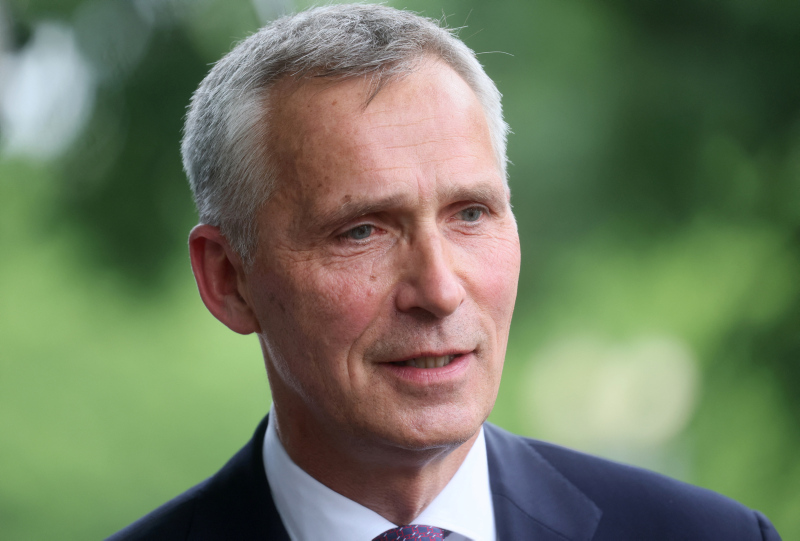NATO secretary-general Jens Stoltenberg said on Thursday that it is up to Ukraine to decide whether to cede territory to Russia for a negotiated end to war.
Stoltenberg said Ukrainians are "paying a high price for defending their own country on the battlefield, but also we see that Russia is taking high casualties."
While reiterating that NATO does not want to enter direct confrontation with Russia, Stoltenberg said the Western military alliance has a "responsibility" to support Ukraine.
"Most wars -- also, most likely this war -- will at some stage end at the negotiating table, but what we know is that what happens around the negotiating table is very closely linked to the situation on the ground, on the battlefield," he said.
Asked if Ukraine was being pressured by the West to accept losses of territory in order to negotiate peace, Stoltenberg said "it's not for us to decide or to have strong opinions what Ukraine should accept or not accept."
"We just have to be prepared for the long haul," the secretary general told reporters. "Because what we see is that this war has now become a war of attrition."
The NATO chief would not comment on whether the alliance was discussing naval escorts to get grain exports blocked in Ukraine out through a Russian blockade of the Ukrainian coast, but said he welcomed efforts to find solutions.
"The easiest way to get more grain out and to reduce the pressure on food prices is for President Putin to end the war," he said. "As long as that's not the case, I welcome the effort by different countries, including NATO allies, also in close coordination with the UN, to look for ways to get more grain out."
This includes efforts to expand land export routes under Ukraine's control "but also the possibility of getting some grain out by ship."
"I welcome those efforts," he said.

NATO will address Turkey's concerns about Sweden and Finland's membership bids, the alliance's chief also said.
"When an ally, Turkey, rises concerns, then we have to do what we always do in NATO and that is to sit down, address those concerns and then find a united way forward," Jens Stoltenberg told reporters at the White House after meeting President Joe Biden.
"That's exactly what we're doing now. We are in close contact with Ankara, with the political leadership there. I've spoken to President (Recep Tayyip) Erdoğan and in also very close contact with Sweden and Finland," he said.
Stoltenberg will convene a meeting with senior officials from three nations ahead of a June 28 NATO summit.
In addition, he said Turkey should be recognized as "an important ally," which he said "contributes to security in many different ways."
He cited Turkey's "strategic geographic location" bordering Iraq and Syria and its "key role" in the fight against the ISIS/Daesh terror group.
Sweden and Finland formally applied to join NATO on May 18, a decision spurred by Russia's war on Ukraine, which began Feb. 24.
But Türkiye, a longstanding member of the alliance, has voiced objections to their membership bids, criticizing the countries for tolerating and even supporting terror groups such as the PKK/YPG and the Fetullah Terrorist Organization (FETO), the group responsible for a failed 2016 coup in Türkiye.
All membership applications must be met by unanimity in the 30-member alliance to be successful.